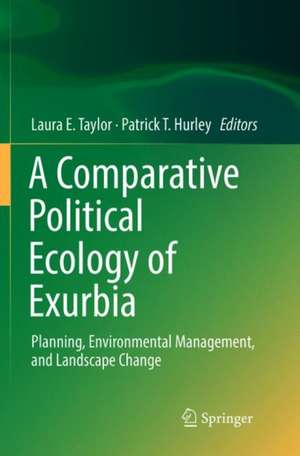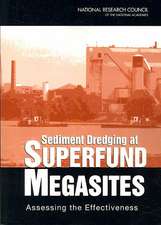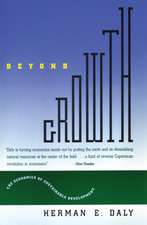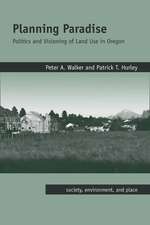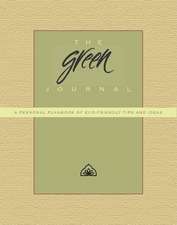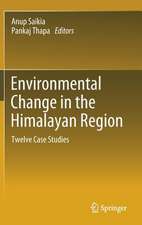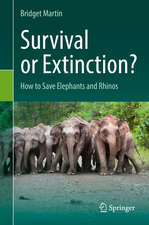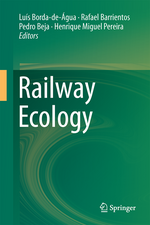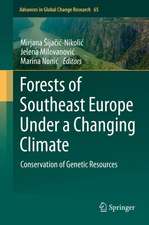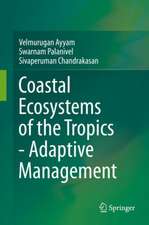A Comparative Political Ecology of Exurbia: Planning, Environmental Management, and Landscape Change
Editat de Laura E. Taylor, Patrick T. Hurleyen Limba Engleză Paperback – 30 mai 2018
This book is about politics and planning outside of cities, where urban political economy and planning theories do not account for the resilience of places that are no longer rural and where local communities work hard to keep from ever becoming urban. By examining exurbia as a type of place that is no longer simply rural or only tied to the economies of global resources (e.g., mining, forestry, and agriculture), we explore how changing landscapes are planned and designed not to be urban, that is, to look, function, and feel different from cities and suburbs in spite of new home development and real estate speculation. The book’s authors contend that exurbia is defined by the persistence of rural economies, the conservation of rural character, and protection of natural ecological systems, all of which are critical components of the contentious local politics that seek to limit growth.
Comparative political ecology is used as an organizing concept throughout the book to describe the nature of exurban areas in the U.S. and Australia, although exurbs are common to many countries. The essays each describe distinctive case studies, with each chapter using the key concepts of competing rural capitalisms and uneven environmental management to describe the politics of exurban change. This systematic analysis makes the processes of exurban change easier to see and understand. Based on these case studies, seven characteristics of exurban places are identified: rural character, access, local economic change, ideologies of nature, changes in land management, coalition-building, and land-use planning.
This book will be of interest to those who study planning, conservation, and land development issues, especially in areas of high natural amenity or environmental value. There is no political ecology book quite like this—neither one solely focused on cases from the developed world (in this case the United States and Australia), nor one that specifically harnesses different case studies from multiple areas to develop a central organizing perspective of landscape change.
| Toate formatele și edițiile | Preț | Express |
|---|---|---|
| Paperback (1) | 641.85 lei 6-8 săpt. | |
| Springer International Publishing – 30 mai 2018 | 641.85 lei 6-8 săpt. | |
| Hardback (1) | 648.24 lei 6-8 săpt. | |
| Springer International Publishing – 6 iun 2016 | 648.24 lei 6-8 săpt. |
Preț: 641.85 lei
Preț vechi: 755.13 lei
-15% Nou
Puncte Express: 963
Preț estimativ în valută:
122.82€ • 128.56$ • 102.22£
122.82€ • 128.56$ • 102.22£
Carte tipărită la comandă
Livrare economică 31 martie-14 aprilie
Preluare comenzi: 021 569.72.76
Specificații
ISBN-13: 9783319805788
ISBN-10: 3319805789
Ilustrații: XV, 310 p. 74 illus., 69 illus. in color.
Dimensiuni: 155 x 235 mm
Greutate: 0.46 kg
Ediția:Softcover reprint of the original 1st ed. 2016
Editura: Springer International Publishing
Colecția Springer
Locul publicării:Cham, Switzerland
ISBN-10: 3319805789
Ilustrații: XV, 310 p. 74 illus., 69 illus. in color.
Dimensiuni: 155 x 235 mm
Greutate: 0.46 kg
Ediția:Softcover reprint of the original 1st ed. 2016
Editura: Springer International Publishing
Colecția Springer
Locul publicării:Cham, Switzerland
Cuprins
Introduction.- Part 1: Control of exurban nature.- Control of exurban nature.- Four legs good, two legs bad? Exurban migration and environmental change.- Exurbanites as environmental stewards (or not): The bioregional planning potential of classifying rural residential land use by management style in Sydney’s exurbs.- A Tale of Two Snoqualmies: Political Ecology of Exurban Development in the Cascade Foothills.- Part 2: Competing rural capitalisms.- Old West versus New West, Exurban Sprawl and High Value Agriculture: Competing or Compatible Capitalisms?.- Symbolic capital, moral economies, and land use conflict: Examining contested ecologies in the exurban landscape.- Contesting the "middle place:" Environmental imaginaries and the gentrified working landscape.- Part 3: Science: knowledge/power Panther Politics.- Part 4: Corporate politics and state control of the exurban vision.- “In the real-estate business whether we admit it or not”: Timber and exurban Development in Central Oregon.- Making Hilton Head: Memory, race, and the environment along the South Carolina coast.- Index.
Notă biografică
Laura E. Taylor is an associate professor and planning program coordinator in York University’s Faculty of Environmental Studies, with a PhD in cultural and historical geography from the University of Toronto. She is a member of the Government of Ontario’s Greenbelt Council, the Urban Land Institute Women’s Leadership Team, and Lambda Alpha International. She is a registered professional planning consultant. She has written many articles on exurbia and planning in both scholarly and professional journals and is co-editor with Kirsten Valentine Cadieux of the book Landscape and the Ideology of Nature: Green Sprawl.
Patrick Hurley is an associate professor of Environmental Studies at Ursinus College where he is an environmental social scientist interested in the politics of natural area conservation and plant foraging in city regions. He holds a PhD in Environmental Studies, Science and Policy from the University of Oregon, where his research on exurbia wonhim the Morris K. Udall Foundation’s Environmental Public Policy and Conflict Resolution Doctoral Dissertation Fellowship. With Peter A. Walker, he is coauthor of the book, Planning Paradise: Politics and Visioning of Land Use in Oregon, and written extensively on exurbia in the western and eastern United States.
Textul de pe ultima copertă
This book is about politics and planning outside of cities, where urban political economy and planning theories do not account for the resilience of places that are no longer rural and where local communities work hard to keep from ever becoming urban. By examining exurbia as a type of place that is no longer simply rural or only tied to the economies of global resources (e.g., mining, forestry, and agriculture), we explore how changing landscapes are planned and designed not to be urban, that is, to look, function, and feel different from cities and suburbs in spite of new home development and real estate speculation. The book’s authors contend that exurbia is defined by the persistence of rural economies, the conservation of rural character, and protection of natural ecological systems, all of which are critical components of the contentious local politics that seek to limit growth.
Comparative political ecology is used as an organizing conceptthroughout the book to describe the nature of exurban areas in the U.S. and Australia, although exurbs are common to many countries. The essays each describe distinctive case studies, with each chapter using the key concepts of competing rural capitalisms and uneven environmental management to describe the politics of exurban change. This systematic analysis makes the processes of exurban change easier to see and understand. Based on these case studies, seven characteristics of exurban places are identified: rural character, access, local economic change, ideologies of nature, changes in land management, coalition-building, and land-use planning.
This book will be of interest to those who study planning, conservation, and land development issues, especially in areas of high natural amenity or environmental value. There is no political ecology book quite like this—neither one solely focused on cases from the developed world (in this case the United States and Australia), nor one that specifically harnesses different case studies from multiple areas to develop a central organizing perspective of landscape change.
Caracteristici
This book is about planning, conservation, and land development issues in exurbia-areas of high natural amenity under pressure from real estate development. It is geared towards a senior undergraduate and graduate academic audience and the general educated public, including municipal officials and consultants The urban and regional planning literature, while concerned with growth management, does not focus rigorously on exurbia and therefore the book makes an important contribution to course readings for planning schools There is no existing political ecology book like this— comparing multiple case studies around the central organizing perspective of landscape change and solely focused on cases from the developed world (in this case the United States and Australia)
